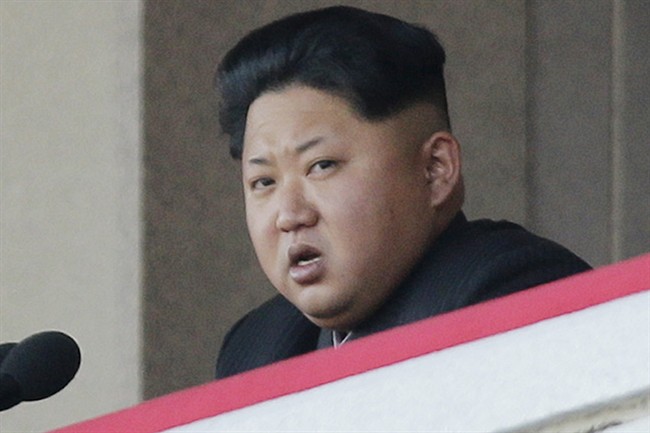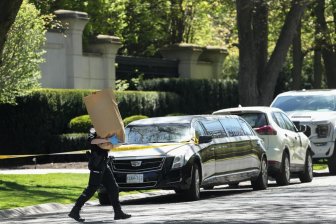North Korea’s declaration that it successfully tested a miniaturized hydrogen bomb provoked global outrage and skepticism in equal measure Wednesday, as many doubted the pariah country’s claim.

Pyongyang announced through its state run media early Wednesday that it had detonated its first H-bomb. Experts say a hydrogen bomb is 1,000 times more powerful than the atomic bombs used against Japan in the final days of the Second World War.
READ MORE: North Korea says it has conducted a hydrogen bomb test
North Korea’s state media said the country plans to use the weapon in self-defence against so-called aggression by the U.S. and its allies.
WATCH: U.N. calls North Korea hydrogen bomb test ‘deeply troubling’

But did it really happen?
We know there was a big bang – an explosion powerful enough to create a magnitude 4.8 earthquake, according to South Korea’s intelligence service (the U.S. reported 5.1 magnitude). But that only works out to about 6 kilotons – smaller than the estimated 7.9-kiloton yield reported after the 2013 nuclear test and a tiny fraction of the hundreds of kilotons that a successful H-bomb test’s explosion would usually yield, said Lee Cheol Woo, a South Korean lawmaker, citing intelligence reports.
The White House also cast doubt on the event saying the U.S. government’s early analysis of underground activity in North Korea “is not consistent” with the claim of a successful hydrogen bomb test.
READ MORE: Ri Chun-hee back on North Korean TV for H-bomb claim
It’s notoriously difficult to verify any information coming from North Korea, which has been effectively sealed off from the outside world since 1953.
“The power of the detonation doesn’t seem to be consistent with an H-bomb explosion,” Andrew Scoball, a senior political scientist with the RAND Corporation, told Global News.
“With an explosion like this it’s pretty straightforward to say something happened. But to determine exactly what happened, that’s more of a challenge.”

The secretive state, led by Kim Jong-un, has claimed in other instances to have developed a cure for AIDS and executed its defence minister with an anti-aircraft gun.
WATCH: North Korea heightens tensions with H-Bomb test

His father Kim Jong-il claimed to have shot 38 under par during a round of golf in 1994, including 11 holes-in-one. In 1978, he abducted two of South Korea’s biggest film names and forced them to shoot several movies including a remake of Godzilla. A story which Scoball said is actually true.
“These kinds of stories make it hard for people to take North Korea seriously,” he said. “They seem like cartoonish characters and it’s easy to make fun of. That makes it more difficult to take seriously the threats that North Korea poses.”
More than anything, Scoball said, it was likely a message – to North Koreans, primarily.
“With an event like this, he signals to the North Korean people and more importantly to the supporters of his regime and the military that he is capable of running the country and moving the country’s nuclear program forward.”
Uncertainty around what actually happened didn’t stop world leaders from condemning the exercise, which would be North Korea’s fourth nuclear test since 2006.
The U.N. Security Council called an emergency meeting to discuss the international response to the test. Secretary-General Ban Ki-moon called the test “profoundly destabilizing for regional security.”
Canadian Foreign Affairs Minister Stephane Dion said on Twitter: “Canada condemns without reservation the reckless behaviour of #NorthKorea, which today claimed to have detonated a nuclear device.”




Comments